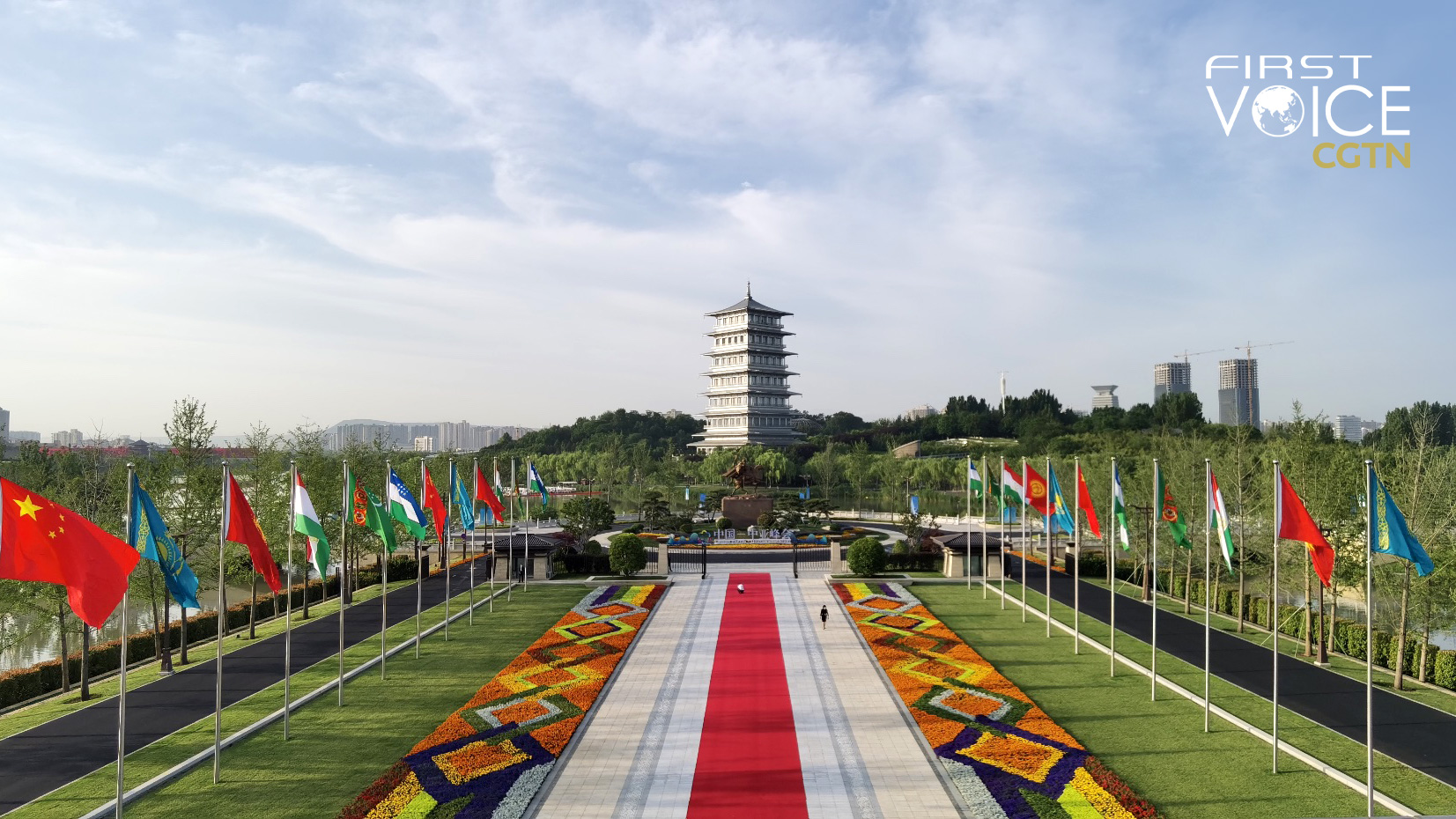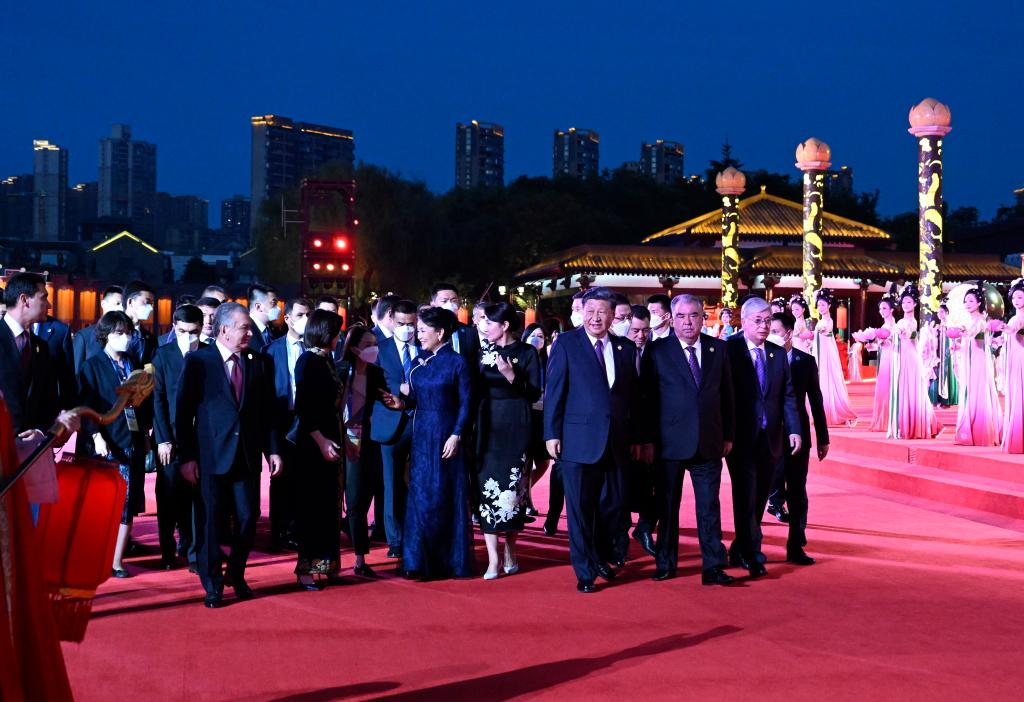
Editor's note: CGTN's First Voice provides instant commentary on breaking stories. The column clarifies emerging issues and better defines the news agenda, offering a Chinese perspective on the latest global events.
On May 19, Chinese President Xi Jinping delivered a keynote address at the China-Central Asia Summit in Xi'an, capital city of China's Shaanxi Province. He said that the world needs a Central Asia that is stable, prosperous, harmonious and well-connected. Four principles were laid out for building a China-Central Asia community with a shared future: mutual assistance, common development, universal security and everlasting friendship.
It isn't an understatement to say that Central Asia is vitally important to the stability of the largest continent on the planet. Located at the center of Asia, it borders major powers like Russia and China, closely engage with countries in the Middle East, which is one of the most volatile regions on the planet, and since the fall of the Soviet Union, the region has been a place of intense geopolitical battle between various forces.
For China, Central Asia countries are crucial to the country's western border and its relationships with the continent's hinterland. China's Xinjiang Uygur Autonomous Region is connected with three of the five countries - Kazakhstan, Kyrgyzstan and Tajikistan. Security and development in these countries would support Xinjiang's peace and stability, which had been threatened by terrorism, extremism and separatism. Central Asian countries are important partners in the Belt and Road Initiatives proposed by China. And since the ancient times, the region has always been China's window to the western parts of Asia. It remains so today.
Security, development and cultural ties lie at the core of China-Central Asia relations. As shown by Xi's remark, proposals are made across a wide-range of issues, from ports to gas pipeline, from industry to agriculture, and from sovereignty to friendship. Xi proposed to set up meetings and dialogue mechanisms to facilitate the all-around cooperation between China and Central Asian countries, covering areas like industrial development and investment, education and political party affairs.

Chinese President Xi Jinping and his wife Peng Liyuan head for the venue of a welcome banquet along with guests in Xi'an, northwest China's Shaanxi Province, May 18, 2023. /Xinhua
Chinese President Xi Jinping and his wife Peng Liyuan head for the venue of a welcome banquet along with guests in Xi'an, northwest China's Shaanxi Province, May 18, 2023. /Xinhua
China and Central Asia have already made significant progress in this relationship. Since the establishment of the diplomatic ties more than three decades ago, China has become Central Asian countries' largest or main trading partner. Trade between them registered a record of over $70 billion in 2022 with a 22 percent year-on-year increase in the first quarter of 2023. About 8,000 Chinese firms are operating in the region. In Xi's remark at the summit, he said that the Chinese-funded businesses will be encouraged to create more local jobs and that China will provide 26 billion yuan ($3.72 billion) of financing support and free assistance to Central Asia countries.
The Belt and Road Initiative, a crucial component of China-Central Asia relations, is reaching new heights. As of 2022, over 65,000 China-Europe freight trains had transported $300-billion-worth of goods. Nearly 80 percent of the trips made went through Central Asia. Xi said that China will strengthen the construction of transportation hubs of these services, and that China will encourage business to build overseas warehouses in Central Asian countries.
There are 62 pairs of sister provinces, regions and cities between China and Central Asia. In 2022, China vowed to bring that number to 100 in five to ten years. China is also inviting Central Asian countries to participate in the Cultural Silk Road program with the building of more traditional medicine centers and launch special trains for cultural tourism.
The relations between China and Central Asian countries have great vigor and vitality in the new era, Xi said at the Summit. The groundbreaking summit marks the beginning of a new era that'll bring greater stability and prosperity to people in China and in Central Asia.
(If you want to contribute and have specific expertise, please contact us at opinions@cgtn.com. Follow @thouse_opinions on Twitter to discover the latest commentaries in the CGTN Opinion Section.)